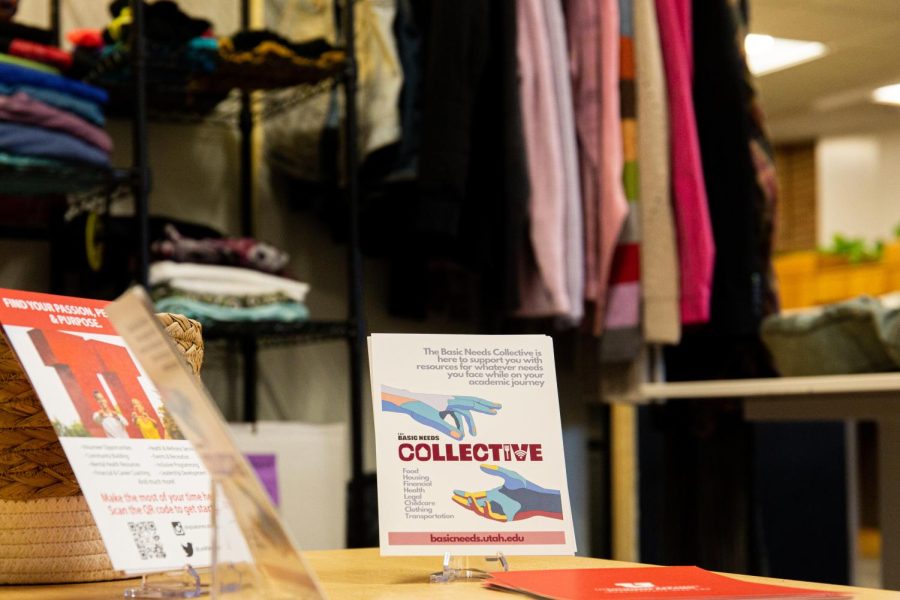Cowley: Promote Ethical Journalism
A view of the Utah State Capitol Building in Salt Lake City on Aug. 21, 2021. (Photo by Kevin Cody | The Daily Utah Chronicle)
November 7, 2022
Staying informed is more frustrating than ever. Being up to date on what’s happening in the world often means reading the same story covered by multiple sources to receive the full picture. As news organizations struggle to adapt in a digital landscape, many take drastic measures to ensure people click on their news stories, utilizing intentionally infuriating headlines. But as journalists, it’s our responsibility to abide by high ethical standards to ensure we give audiences a straightforward perspective of the world.
What it Means to be a Journalist
Journalists are at the forefront of shedding light on the injustices of our society: we keep the public aware and informed of what is going on in our communities, and our work plays a massive role in how people draw conclusions on different topics.
Being a journalist is not an easy job — each piece requires hours of research, writing and revisions, not to mention adhering to strict deadlines. Burnout is extremely common, but with that said, no matter how tight deadlines are, we have a responsibility to put out thorough and accurate information. We triple-check sourcing, run through multiple edits and abide by the highest standards of ethics in accuracy, transparency and honesty. When your job is to inform the public, you make sure to provide accurate reporting.
Unethical Journalism
It isn’t uncommon to see articles that are poorly written or minimally researched, or intentionally leave out key details in a news story to misinform readers. Some platforms are guilty of pushing pieces out with little regard for the consequences a story can have.
Fox News and other conservative news outlets are especially notorious for their use of rage-bait. One article from Fox News covered outrage following an AP news breakdown of how drag queens have been pulled into politics. Journalist Kristine Parks used exactly three tweets as examples of said outrage, but misled viewers into thinking their attitudes were widespread: in fact, one of the tweets used as evidence had a whopping total of seven likes and four retweets. Not only did the article misleadingly report on the public’s opinion, but it also perpetuated the false idea that drag grooms children, since Parks linked an opinion piece claiming drag story hours sexualize children.
Sometimes, news outlets don’t act in the best interest of audiences and people seeking truthful journalism, and instead publish the stories they know will bring in the most clicks.
Ramifications of Unethical Journalism
The ramifications of unethical, incendiary and frankly lazy journalism are dangerous. Going back to the aforementioned Fox News article on drag queens, if you take one look at the comment section, it shows the effects of this skewing of the truth. One comment reads, “There is no ‘rich history’ for perversion. Taking children to see ‘drag queens’ is child abuse. The ‘drag queens’ and the people who take children to see them should be arrested and jailed.”
The effects of such stories don’t stop at the comment section: the hateful rhetoric and blatant false information present incites real life violence. 2021 was the deadliest year on record for trans and nonbinary people, with 2022 on track to overtake it. Is it a coincidence that these statistics coincide with a 400% surge in anti-LGBT grooming narratives being spread online?
The articles journalists publish and the narratives outlets push have real effects on real people. It is beyond irresponsible to treat people, their experiences and their stories as nothing more than a way to bring more traffic to news outlets.
Another example of unethical journalism would be certain reporting during the 2020 election cycle — some stories circulated conspiracies of mail-in voting fraud. Our state of Utah has employed the use of mail-in voting for years without any public outcry. But when unsubstantiated reports of dead voters and other claims of voter fraud popped up, some Utahns wanted to do away with the mail-in voting system. There was a failed attempt to undo the entire thing completely. This outcry was fueled by reports of non-existent voter fraud and jeopardized an entirely legitimate means of democracy.
It is the job of journalists to produce well researched and informative stories. It is our job to promote ethical journalism, no matter how much more work comes with it, and we should hold other journalists and news outlets accountable in following ethical journalism standards.












